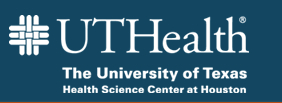Evidence Based Dissemination for Mammography Adherence in Safety Net Communities
| Status: | Recruiting |
|---|---|
| Conditions: | Breast Cancer, Cancer |
| Therapuetic Areas: | Oncology |
| Healthy: | No |
| Age Range: | 40 - Any |
| Updated: | 4/21/2016 |
| Start Date: | July 2015 |
| End Date: | July 2017 |
Breast cancer is the most common cancer and the second leading cause of cancer related death
in American women. Regular screening, early diagnosis, and timely treatment initiation have
been shown to reduce breast cancer morbidity and mortality. However, disparities continue to
exist across the breast cancer continuum for underserved women, particularly minority women.
The reduction of disparities in breast cancer outcomes is a major goal of Healthy People
2020 and the National Cancer Institute. However, the preventable burden of late stage breast
cancer will continue until the investigators close the gap between what is known about
prevention and what is implemented in the community. Although many sources of information
exist about theory and [theory-] and evidence-based interventions (EBIs) to promote
mammography screening, their adoption and use in the community has been limited and
haphazard at best.
in American women. Regular screening, early diagnosis, and timely treatment initiation have
been shown to reduce breast cancer morbidity and mortality. However, disparities continue to
exist across the breast cancer continuum for underserved women, particularly minority women.
The reduction of disparities in breast cancer outcomes is a major goal of Healthy People
2020 and the National Cancer Institute. However, the preventable burden of late stage breast
cancer will continue until the investigators close the gap between what is known about
prevention and what is implemented in the community. Although many sources of information
exist about theory and [theory-] and evidence-based interventions (EBIs) to promote
mammography screening, their adoption and use in the community has been limited and
haphazard at best.
In order to effectively reach underserved women and reduce breast cancer disparities, D&I
efforts should target the healthcare delivery system where these women receive service - the
so called "safety net". Within the safety net, federally qualified health centers (FQHCs),
provide comprehensive primary health care services for underserved communities regardless of
ability to pay, including mammography screening. Our team has successfully pilot tested a
National Cancer Institute research tested intervention program (RTIP) with underserved women
and were able to reduce no-show rates from 44% to 19%. In order to accelerate the adoption
and implementation of our EBI within the safety net, the investigators will use a two-step
approach based on the consolidated framework for implementation research (CFIR), and
intervention mapping. The investigators will actively disseminate the EBI through a unique
breast health collaborative with a wide membership of FQHCs, support implementation through
training and evaluate the adoption, implementation, sustainment and effectiveness of the
EBI. The investigators will use a clinic clustered stepped wedge design for implementation
in FQHCs.
efforts should target the healthcare delivery system where these women receive service - the
so called "safety net". Within the safety net, federally qualified health centers (FQHCs),
provide comprehensive primary health care services for underserved communities regardless of
ability to pay, including mammography screening. Our team has successfully pilot tested a
National Cancer Institute research tested intervention program (RTIP) with underserved women
and were able to reduce no-show rates from 44% to 19%. In order to accelerate the adoption
and implementation of our EBI within the safety net, the investigators will use a two-step
approach based on the consolidated framework for implementation research (CFIR), and
intervention mapping. The investigators will actively disseminate the EBI through a unique
breast health collaborative with a wide membership of FQHCs, support implementation through
training and evaluate the adoption, implementation, sustainment and effectiveness of the
EBI. The investigators will use a clinic clustered stepped wedge design for implementation
in FQHCs.
Inclusion Criteria:
- Underserved as defined by income <=200% of the federal poverty level for a family of
four
- Uninsured
- In need of mammography screening; has received clinical breast exam and referral to
screening
- Has upcoming screening appointment
Exclusion Criteria:
We found this trial at
1
site
7000 Fannin St
Houston, Texas 77030
Houston, Texas 77030
(713) 500-4472

Principal Investigator: Linda Highfield, PhD
University of Texas Health Science Center at Houston The University of Texas Health Science Center...
Click here to add this to my saved trials